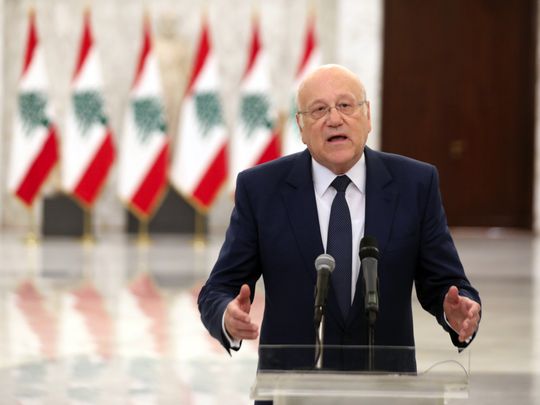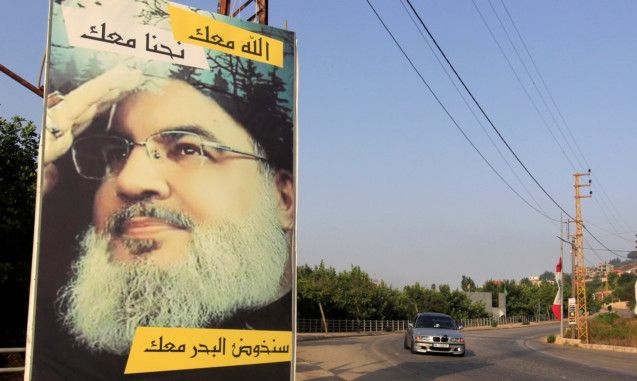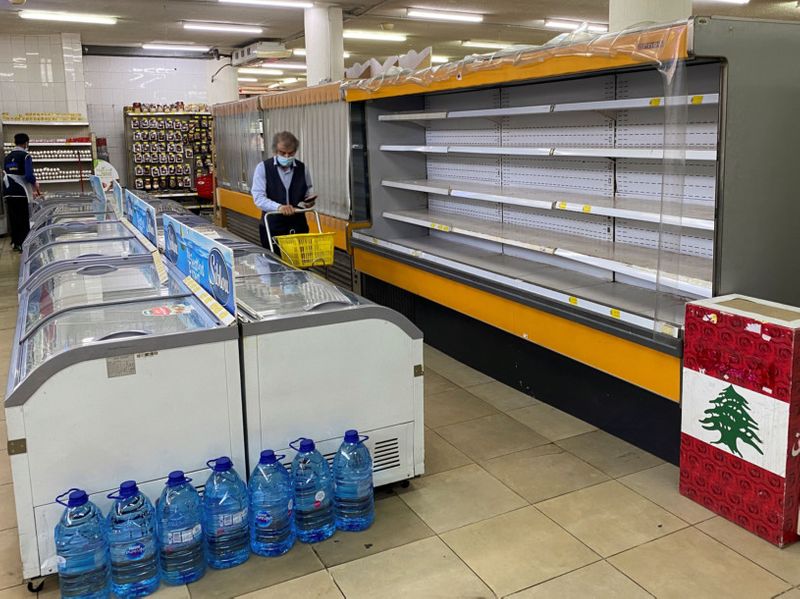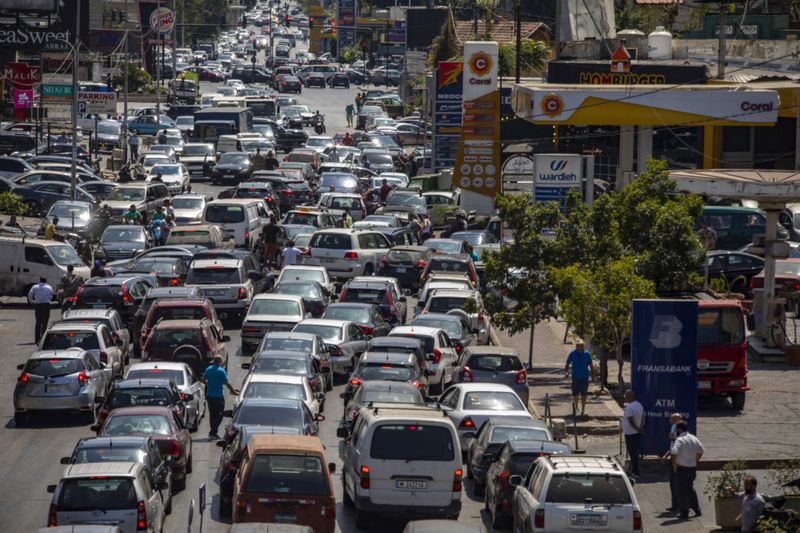
Damascus: International support for Lebanon’s new Prime Minister Najib Mikati was quick, coming just days after he created a new government, ending 13 months of political vacuum. Talks with the International Monetary Fund resumed almost immediately, and on Monday, the IMF announced that it would bankroll the cash-strapped country with $1.135 billion.
That was music to the ears of Mikati, a two-time former premier who returns to power amidst the worst economic crisis the country has witnessed in its modern history. Mikati welcomed the move, but warned the Lebanese: “We don’t have a magic wand and the situation is very difficult.”
Talks with the IMF started last year by former Prime Minister Hassan Diab, with the hope of securing $9-11 billion for Lebanon. They were suspended due to Diab’s abrupt resignation after the Beirut port explosion on August 4, 2020, given that constitutionally a caretaker premier cannot negotiate, let alone approve or sign any international agreement of such magnitude.
Curbing the influence of Hezbollah
International donors meeting in France had pledged $11 billion to Lebanon back in 2018, but that loan came with a series of conditions that then-Prime Minister Saad Hariri could not meet, among which was reforming the public sector, combating corruption, and curbing the influence of Hezbollah. And yet it was precisely because of Hezbollah that the international community decided to act now in order to save Lebanon from falling completely into the arms of Iran.

Last month, Tehran announced that it would be sending large quantities of fuel to Lebanon, a country left in total blackout due to chronic electricity shortages. With no money to import fuel, authorities had recently imposed strict rationing of the country’s razor-thin supply, with no more than one hour of electricity per day in certain neighbourhoods of Beirut.
Less than two days after the Iranian pledge was announced by Hezbollah chief Hasan Nasrallah on August 19, the United States contacted President Michel Aoun through its ambassador in Beirut Dorothy Shea, saying that it was going to allow Egyptian gas to reach Lebanon through the Arab Gas Pipeline (AGP), hoping that this would reduce its reliance on Iranian fuel.

The Arab Gas Pipeline
Bringing Egyptian gas to Lebanon required many things, one of which was repairing the pipelines, which have been out-of-operation since 2011. That would be done by the World Bank, said Ambassador Shea, relieving Lebanon from yet another economic burden. The US then went a step further, allowing the Egyptian gas to run through Syria, which is sanctioned by the American government.
According to the original AGP agreement, Egyptian gas would flow to Lebanon coming from Jordan to Syria until it reaches the northern Lebanese city of Tripoli. Before the Syrian war started in 2011, Damascus would receive transit fees for allowing Egyptian gas to pass through its territory. It won’t be getting any money today but the US will not object to reimbursing the Syrian government with gas in order to elevate their own electricity problem, which reached its peek this summer, leaving entire cities — including Damascus itself — in complete blackout.
A pro-Syrian cabinet
Syria has welcomed formation of the Mikati government, considering it the most pro-Syrian cabinet to rule Lebanon since the exodus of Syrian troops back in 2005. More than half of its ministers are linked to Lebanese political parties that are backed by Damascus (3 from Hezbollah, 3 from the Amal Movement, 6 from the Free Patriotic Movement, 2 from the Marada Party, and 1 from the Syrian Social Nationalist Party).
President Aoun’s Free Patriotic Movement (FPM) has been given control of strategic portfolios like defence, foreign affairs, justice, and energy. The last portfolio is of great importance to Aoun, given that Lebanon is expected to be sitting on a large reservoir of gas in its territorial waters.
Meanwhile, Hezbollah has been awarded the Ministry of Public Works, which will likely play an important role in the future, when reconstruction money starts pouring into Lebanon (including the amounts about to arrive from the IMF). Saad Hariri had refused granting Hezbollah the Ministry of Public Works, fearing that this would might have triggered sanctions by the US or an Arab boycott of the reconstruction of Lebanon.
Most of Mikati’s new ministers support re-engagement with Damascus, ending the policy of neutrality that was heralded by former Prime Minister Hariri at the start of the Syrian war in 2011. Days before the Mikati cabinet was announced, that neutrality came to and end through the visit of a delegation of Lebanese ministers to Damascus to discuss logistics of the Arab Gas Pipeline. Mikati himself is a long-time ally of the Syrians, with investments in one of the country’s two GSM operators.
Challenges
By the end of this week, two milestones would have been reached for Lebanon, for which Mikati will take credit, helping win minds and hearts among ordinary Lebanese, half of whom now live below the poverty line. First is the arrival of 300 trucks of Iranian fuel, which is currently on its way from Syria, and second is the transfer of the IMF’s $1.1 billion to the Central Bank of Lebanon.

Meanwhile, it was also announced that repair of the Arab Gas Pipeline required two weeks, raising expectations that Egyptian gas will reach the country by Christmas. Improvement was automatically noted with the Lebanese exchange rate, now trading at 16,000 LP to the US dollar. Three weeks ago, it had reached the all-time high of 22,000, up from its long 1,500 LP just two years ago.
But neither breakthrough will allow the Central Bank to unlock the deposits of Lebanese citizens, a regulation has been in-place since late 2019. Depositors would still be prevented from withdrawing their money, certainly not in American dollars, which remain in chronic shortage throughout the Lebanese banking sector. Non-military needs of the Lebanese Army (including medicine and insurance for soldiers and officers) costs the state $100 million annually.
Annual salaries for the public sector come next, costing $6 billion per year, followed by $10 billion for wheat importation.
The lion’s share goes to petroleum, with $3.7 billion, while medicine costs $1 billion annually. That is not to mention rebuilding what was destroyed of Beirut by the port explosion, which tore down half the city, killed over 200 citizens and displaced hundreds of thousands. Fixing the damage alone would cost anywhere between $3.8-4.6 billion, according to the World Bank.
Mikati will have to be very careful about where he puts his money in the upcoming weeks and months, deciding on which sector he wants to bankroll first — a decision that won’t be easy, and nor will it be satisfying to the Lebanese people who need more than what he, or any other premier can provide.








